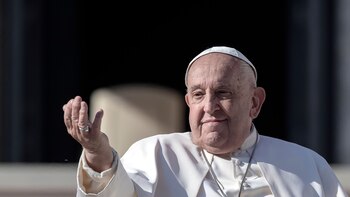
(ATR) Testimony is under way in the defamation lawsuit against Vancouver 2010 CEO John Furlong.
Filed by a journalist who wrote an exposé about Furlong’s early years as a Canadian resident, the lawsuit from Laura Robinson came after Furlong filed a defamation lawsuit in 2012 against Robinson which he later dropped.
Robinson’s attorney told a British Columbia Supreme Court judge in opening statements June 15 that Furlong never intended to follow through on his lawsuit against the journalist.
"Mr. Furlong’s strategy to use the media to lambaste Ms. Robinson has increased the damage to her reputation," Bryan Baynham said before Justice Catherine Wedge.
"Her credibility with publishers has been seriously harmed, alleging that Ms. Robinson is an activist or somehow caused or made up the allegations she reported on is a ruinous allegation to make about a journalist."
Furlong sat in the back row of the courtroom with his companion, former Vancouver 2010 vice president of communications Renee Smith-Valade. Robinson sat two rows ahead.
Robinson’s September 2012 story in the Georgia Straight, headlined "John Furlong biography omits secret past in Burns Lake," revealed that he came to Canada from Ireland in 1969 as a physical education teacher for a northern British Columbia Catholic elementary school for aboriginals. Furlong’s 2011 memoir, Patriot Hearts, claimed he arrived in 1974 at Edmonton.
The story included allegations from aboriginal students who said Furlong abused them. Furlong immediately denied the accusations and sued for defamation two months later. He never scheduled a trial against Robinson, but embarked on a media blitz in fall 2013, calling her an activist who was responsible for complaints made to the Royal Canadian Mounted Police.
Robinson filed a countersuit in January 2014. But Furlong discontinued his action against the newspaper in October 2013 and Robinson in March of this year. Baynham said Furlong wanted to try the case in the "court of public opinion, not a court of law."
"By dropping the suit, Mr. Furlong conceded that Ms. Robinson’s original story was true, his legal right to clear his name died when he filed that notice of discontinuance," Baynham said.
Baynham told the court that the Toronto Star was originally planning to simultaneously publish the story with the Georgia Straight during the London 2012 Olympics, but withdrew. The Vancouver weekly published alone.
Baynham told the court that Robinson was simply doing her job as a journalist best-known for "critical analysis of the safety and well-being of athletes and the equality issues" for women and aboriginals in sport. Since the attacks by Furlong, Baynham said Robinson’s ability to find work has dwindled and the cost of defending herself has exceeded $150,000.
"Why did Mr. Furlong defame and attempt to discredit Ms. Robinson?" Baynham said. "He did it because she reported on aspects of his past, that he did his best to keep hidden and because she reported on serious allegations about Mr. Furlong made by former First Nations students."
Baynham said Robinson has suffered mentally and emotionally with "several trips to emergency wards in serious physical complications due to the stress she was under."
The RCMP dropped its investigation of Furlong in 2013.
Three lawsuits alleging physical and sexual abuse never made it to trial.
Wedge, coincidentally, was an equestrienne for Canada in the Montreal 1976 Olympics.
Written and reported in Vancouver by Bob Mackin
20 Years at #1: Your best source of news about the Olympics is AroundTheRings.com, for subscribers only.
Últimas Noticias
Sinner-Alcaraz, the duel that came to succeed the three phenomenons
Beyond the final result, Roland Garros left the feeling that the Italian and the Spaniard will shape the great duel that came to help us through the duel for the end of the Federer-Nadal-Djokovic era.
Table tennis: Brazil’s Bruna Costa Alexandre will be Olympic and Paralympic in Paris 2024
She is the third in her sport and the seventh athlete to achieve it in the same edition; in Santiago 2023 she was the first athlete with disabilities to compete at the Pan American level and won a medal.

Rugby 7s: the best player of 2023 would only play the medal match in Paris
Argentinian Rodrigo Isgró received a five-game suspension for an indiscipline in the circuit’s decisive clash that would exclude him until the final or the bronze match; the Federation will seek to make the appeal successful.

Rhonex Kipruto, owner of the world record for the 10000 meters on the road, was suspended for six years
The Kenyan received the maximum sanction for irregularities in his biological passport and the Court considered that he was part of a system of “deliberate and sophisticated doping” to improve his performance. He will lose his record and the bronze medal at the Doha World Cup.

Katie Ledecky spoke about doping Chinese swimmers: “It’s difficult to go to Paris knowing that we’re going to compete with some of these athletes”
The American, a seven-time Olympic champion, referred to the case of the 23 positive controls before the Tokyo Games that were announced a few weeks ago and shook the swimming world. “I think our faith in some of the systems is at an all-time low,” he said.




